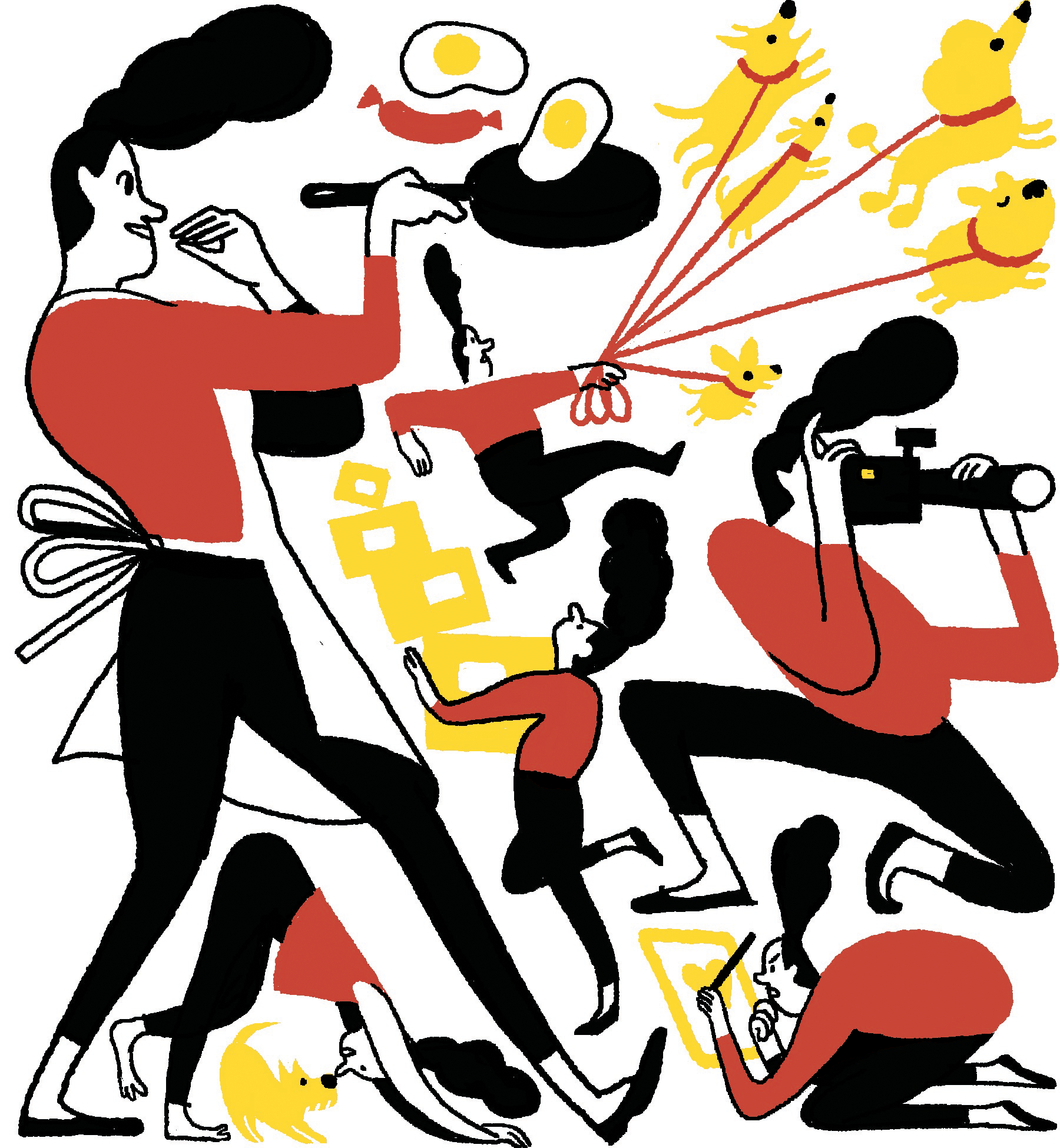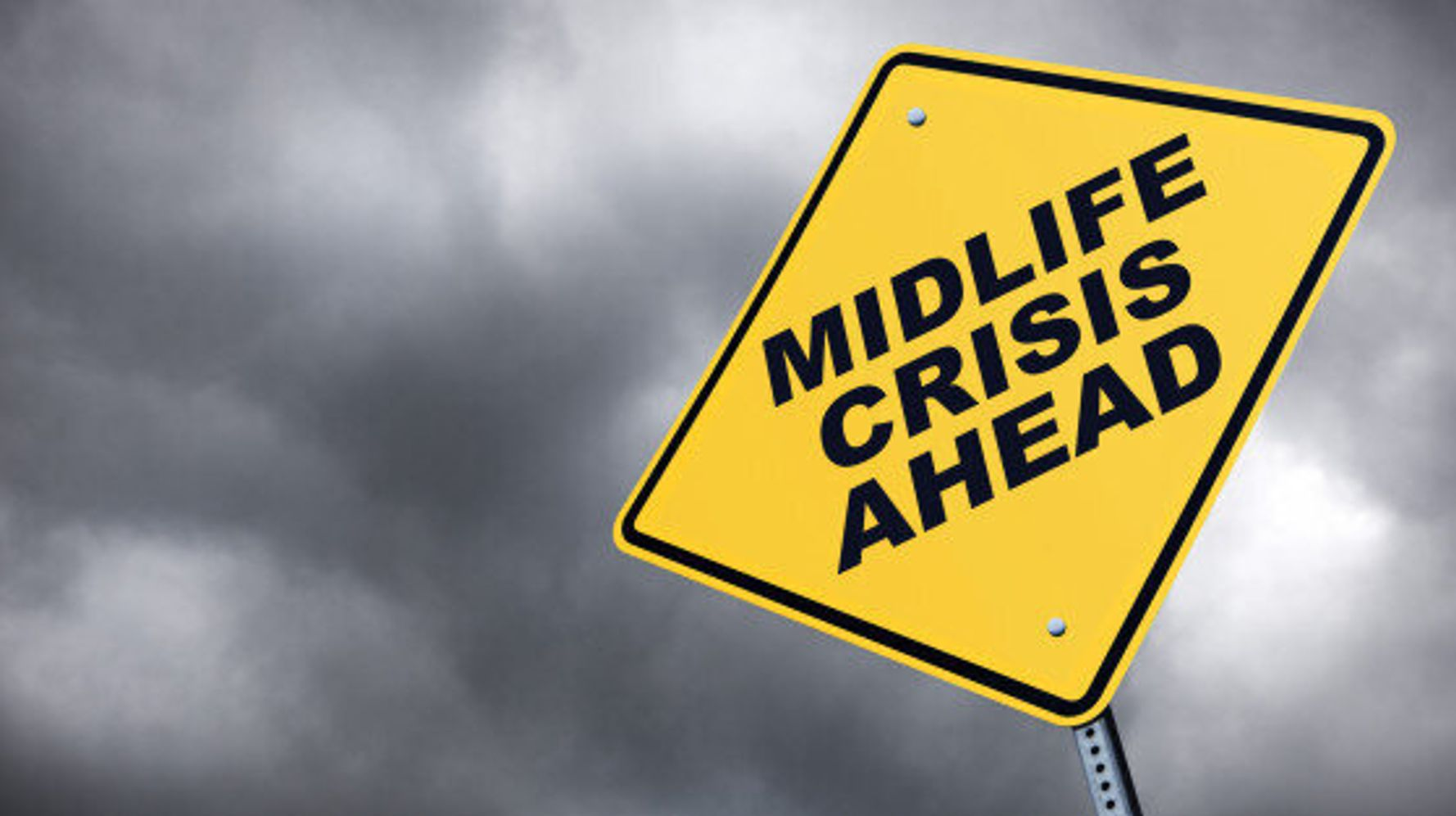Women Midlife Crisis
Feminine Midlife Crisis: How to Recognize and Live Through

Age crisis happens approximately at the age of 35–50. It is a so called ““age 40” crisis”: a period when we start doubting our own achievements, purpose and meaning of our existence. It may seem that this does not concern you, that you are totally satisfied with life, but everyone sooner or later thinks about future, past, missed opportunities and perspectives [including the unreachable ones].
We worry if we could live the allotted time without regret, gain happiness and stay ourselves.
The midlife crisis essence is in rolling-up. As if you have run a half of a marathon, and you look back and watch the way which is already passed.
Usually this self-analysis period causes very serious inner emotions, so it is important for you to be ready to such state and understand how to productively overcome it. Without harm to your mental health.
What is Midlife Crisis?

Midlife crisis is a lingering emotional and psychological state of a person connected with the revision of own experience and its assessment.
Usually you realize that many dreams of your childhood and youth will not come true (or just seem unreachable), and the finitness of your own existence seems more and more inevitable.
Earlier the oldness was “somewhere”, and now it becomes a rather predictable event.
The symptoms of the crisis age in women are:
- Depression and feeling of oppression;
- Overwhelming pity and regret;
- Feeling of emptiness and meaningless;
- Feeling of a “vicious circle” in career, marriage or any other sphere of life;
- Feeling of unfairness.
The depression is intensified due to the natural age-related deterioration in physical condition: fluctuations in weight, wrinkles and weakening of the skin tone, endurance decrease and so on.
Reasons of the Midlife Crisis in Women Emergence

The midlife crisis in women often coincides with hormonal changes, so called “climacterical period”. But physiological reasons are only a top of the iceberg. Psychological factors “hit” the well-being no less strongly. Somebody has conflicts in personal life (love, home, raising of children, and so on), somebody – in the professional sphere.
At 20 we are ambitious. Any task seems executable with the help of willpower. By 30 the desire to achieve goals is complemented (or displaced) by a desire to prove your valuability to yourself and your surroundings. When you are “covered” by crisis your internal resources to prove anything are exhausted.
Those who left their job because of their personal life (marriage, children) and chose the house usually regret that they haven’t built a career. On the other hand, those whose priority was set on the professional realization… often regret that they haven’t got married and given birth to children.
What is the Difference between the Crises in Women and in Men?

It is difficult to identify a pure “female” and “male” type, but if we generalize, then the crisis age of women and men comes with a difference of several years. They differ in manifestations: women are more likely to withdraw into themselves and plunge into the emotional abyss, while men tend to compensate for inner emotions with self-destructive hobbies: alcohol, sexual relations with different partners (often the younger ones), and so on. Sometimes both sides sublimate into professional realization and try to squeeze the maximum out of themselves, working every time as if for the last.
One of the key fears is oldness and loss of attractiveness. For this reason, we try to take care of ourselves more, we often experience a crisis in relationships/marriage. Hence the aggressive sexual behavior appears - if you are popular with the opposite sex, then you are still young. Yes, these are rough symptoms and differences, but they help you better understand what to take into consideration. A reflective stance will help alleviate a midlife crisis and avoid impulsive actions about which you might regret when the “black streak” recedes.
How to Overcome the Midlife Crisis?

- Look at your life objectively. Do not hurry to change everything and plan a new “successful” phase. Now you are looking at the situation from the inside, you are deep in it and you don’t see the full picture. Start from a little pause, some rest. Give yourself an opportunity to emerge out of the stress and let the situation go at least for a week. After such rest try to formulate your desires in writing. Divide them into three blocks: “what did you want to do”, “what could you do” and “what would you do in the future”. Mention things which make you happy, and see if your daily life matches or contradicts to this list.
- Search for goal. Motivate yourself, if your daily life seems to be the Groundhog Day. Make a list of the achieved goals and of the goals which you would like to achieve in future. Assess objectively your victories (do not devalue your achievements!) and revise other points: something may have lost value for you or something should be added to the list.
- Good sleep and therapists help. Sleep a comfortable amount of time and try to do it at night. Lack of rest may make you more sensitive and psychologically weak. Fatigue prevents from perceiving events happening during the day: you will react more sharply on the negative situations and not notice anything positive. If you feel that you are not able to cope with a situation by yourself (or want to overcome this difficult phase faster) – see the psychotherapist. Even several consultations will ease your condition. And if you are here with me for the whole month – check your "Gifts" in our Private Place, you will definitely fine there useful leads on really good conditions?
- Be open and curious. Do things which you always wanted to do, try something new and do your best to get the most diverse experience.
Everybody goes through the midlife crisis, but not everybody understands what this condition is and how you could overcome it. If you do not realize your own state of health, accumulate this stress, you risk to project the emotions on the surrounding people, make premature conclusions about the quality of your life and inflict many emotional wounds on yourself.
But there is also a positive side: you could analyze all your life aspects, ask many questions about what was in the past and what you want to see in the future. This phase may turn a problem into an opportunity to love yourself, assess your acquisitions and start doing what you want, not what your surroundings, parents, friends or “you from the past” want.
You may also be interested in:















